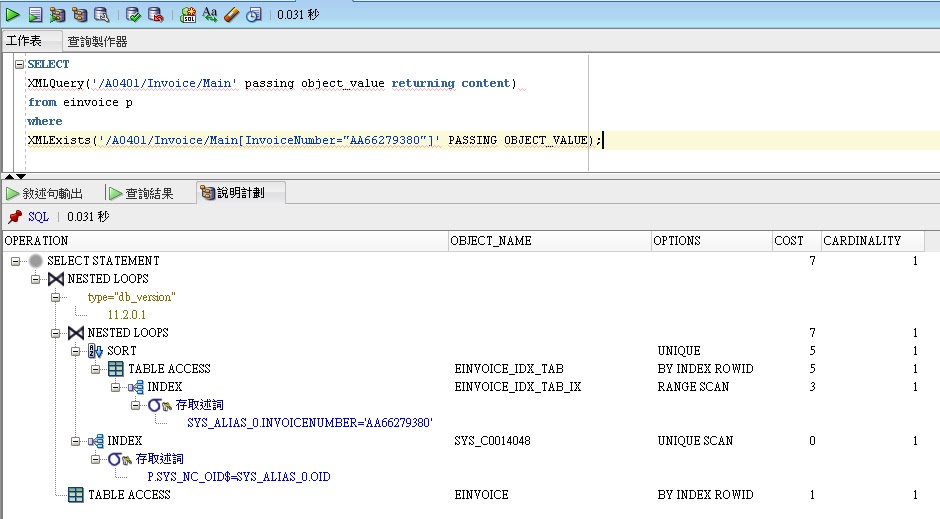21:39:34 SQL> CREATE TABLE einvoice_part OF XMLType
21:39:34 2 XMLTYPE STORE AS SECUREFILE BINARY XML
21:39:35 3 ( TABLESPACE "FSMS_DATA" STORAGE ( INITIAL 1 M NEXT 1M))
21:39:35 4 VIRTUAL COLUMNS
21:39:35 5 (INVOICENUM AS (XMLCast(XMLQuery('/A0401/Invoice/Main/InvoiceNumber' PASSING OBJECT_VALUE RETURNING CONTENT)
21:39:35 6 AS varchar2(12))))
21:39:35 7 STORAGE(INITIAL 8K NEXT 8K)
21:39:35 8 TABLESPACE "FSMS_DATA"
21:39:35 9 PARALLEL
21:39:35 10 PARTITION BY HASH (INVOICENUM)
21:39:35 11 PARTITIONS 256
21:39:35 12
21:39:38 SQL> /
Table created.
Elapsed: 00:00:16.27
21:39:55 SQL>
Testing running sqlldr to eInvoice_part
Control file
load data
infile 'filelist.dat'
APPEND
into table einvoice_part
xmltype(XMLDATA)
(
filename filler char(120),
XMLDATA lobfile(filename) terminated by eof
)
Execution SQL Loader Command line
$ sqlldr userid=fsms/password@orcl control=filelist.ctl direct=y log=20110312.log
SQL*Loader: Release 11.2.0.1.0 - Production on Mon Mar 21 21:44:58 2011
Copyright (c) 1982, 2009, Oracle and/or its affiliates. All rights reserved.
Load completed - logical record count 14959.
View 20110321.log
Total logical records skipped: 0
Total logical records read: 14959
Total logical records rejected: 0
Total logical records discarded: 0
Total stream buffers loaded by SQL*Loader main thread: 88408
Total stream buffers loaded by SQL*Loader load thread: 0
Run began on Mon Mar 21 21:44:58 2011
Run ended on Tue Mar 22 00:03:19 2011
Elapsed time was: 02:18:19.84
CPU time was: 01:59:16.81



